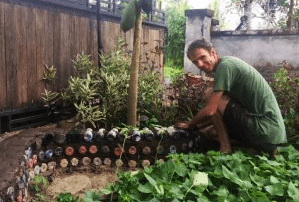I just came across a brilliant lecture series on non-violent communication. WOW. Fantastic stuff.
For those of you who haven’t heard of this approach to consciously using our language to make interactions life enriching, I highly suggest checking it out. The founder Dr. Marshall B. Rosenberg points out with great insight how language (English in particular) is seeped with constructs that support the old hierarchies of masters and servants, lords and peasants, of domination through coercion, guilt, punishment and reward. He points out that this way of communicating and relating is much more damaging than beneficial. He points to a better way of communicating– non-violent communication.
My discovering this lecture series by Marshall Rosenberg comes with perfect timing. I am taking a moment of silence to reflect on my relationship with Bianca, and my relationships in general– but especially with her. I love her very much and I am striving to empathize with anger, emotions and the feelings that arise in her and in me.
I’ve been learning alot in this relationship. Perhaps the deepest lesson is my complete responsibility for my feelings, emotions and moments. As Marshall says:”What other people do is not the cause of our anger but the stimulus.” This is a powerful concept that changes everything in one’s relating.
I had known this intellectually before. Eckarte Tolle eloquently points out how our every single moment is a consequence of all the choices we have made, of our upbringing, of… ourselves. Even if we find ourselves in an alley being mugged, or being shouted at, we have brought ourselves to those– and, most importantly, there is nothing wrong. We are divine, multi-dimensional beings, and our creations are perfect.
Marshall Rosenburg actually gives examples in his lectures of people being mugged, in war zones, or other”bad” situations. He then describes how these folks applied his principles to beautifully turn the experience around for themselves and the other. By being conscious not to judge circumstances and people, both internally and with the language we use, we can instead compassionately empathize with the other. This empathy is powerfully transformative.
Eckharte Tolle does a great job laying aphilosophical framework for this. He urges us to be deeply present with ourselves and others when we (or they) are consumed by our emotions. In this presence, it is my experience that we can simply observe and love what is, the other, us. It is a beautiful of grounding and transformation!
Alas, one shortcoming of Eckharte Tolle, is that he doesn’t do such a good job describing the mechanics of being present, of empathizing.
This is my shortcoming also. I have much to learn still about empathizing and loving myself when I go off in a subconscious dialogue of self-deprecation. Likewise, I have much to learn about being present and empathizing with my partner and others.
I feel this is a fantastically important road. Perhaps the most important. Marshall utters a great line in the lecture “”I strongly believe that to what ever degree I support the consciousness that there is such a thing as a greedy person or a moral person, [or a bad this or a good that], I beleive in some way I am really contributing to violence on the planet.” Wow. What a great insight– and it is true, it all starts inside, then how we relate, then all this passes to the rest of the planet.
———
“All violence I believe is the result from people tricking themselves into believing that their pain derives from other people and that those people deserve to be punished for what they did”.
–Marshall B. Rosenberg


